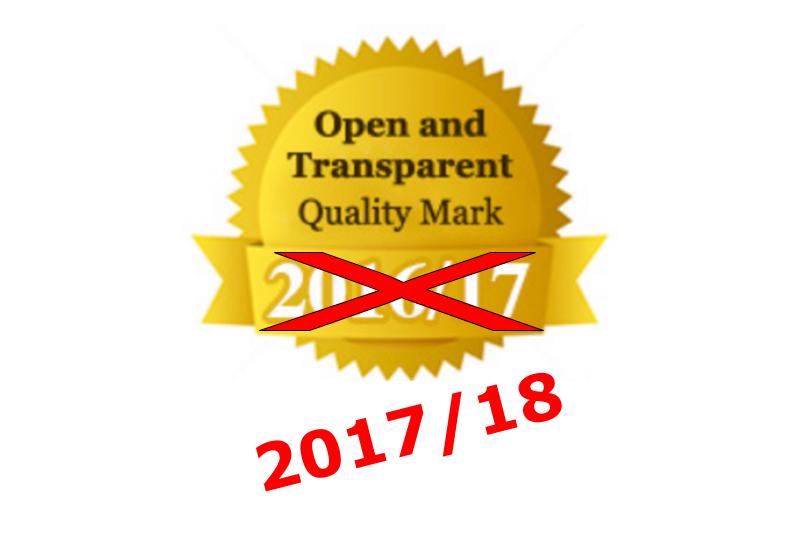“The public need independent, consistent and clear information on the performance and activities of their PCC. Transparency is essential to promote confidence in the elected PCC. A consistent minimum amount of evidence will also allow the public to compare the performance of their PCC with PCCs elsewhere.” – Home Office
I today emailed every Office of the Police and Crime Commissioner (OPCC), as follows…
*****
This is to invite your OPCC’s involvement in this year’s CoPaCC “OPCC Transparency” review.
Background
CoPaCC first reviewed PCCs’ ability to meet their statutory transparency responsibilities one year after the first PCC elections, with our Thematic published in November 2013. As CoPaCC’s Chief Executive, I subsequently gave evidence on our Thematic’s findings to the Home Affairs Select Committee, where the Chair of the Committee suggested that CoPaCC might act as “a national register that just collates all this information together”.
Last year, 23 OPCCs were awarded the CoPaCC Transparency Quality Mark. These OPCCs were: Avon & Somerset, Cambridgeshire, Cleveland, Derbyshire, Devon & Cornwall, Dorset, Durham, Essex, Gloucestershire, Gwent, Hertfordshire, Humberside, Kent, Leicestershire, Lincolnshire, Norfolk, North Wales, North Yorkshire, Nottinghamshire, Suffolk, Surrey, Warwickshire and West Midlands.
Richard Thomas CBE, a member of the Committee on Standards in Public Life, addressed those gathered for the presentation of these Transparency Quality Marks, and supported the presentation of the awards.
Our approach
Our original November 2013 Thematic sought information from OPCCs through a formal Freedom of Information request. Since then, we have deliberately not used FoIs to gather this type of information, as we recognise that this causes an unnecessary burden on recipients. Instead, each year we simply invite each OPCC to provide us with details of how your OPCC meets the current statutory transparency require
Our invitation to you
Should you wish your OPCC to participate in this year’s “OPCC Transparency” review, please:
- acknowledge receipt of this email
- within six weeks (i.e. by 5pm on Friday, 22nd September, 2017), email us with your explanation of how your OPCC meets your current statutory responsibilities on transparency
- in that response, also provide contact details for an OPCC member of staff, with whom we can check (if necessary) any detail of your response
- also provide us with any guidance you wish us to receive on timing of our event to present these 2017/18 Quality Mark (see “what we will subsequently do” below)
Our analysis of your submission will, of course, be made all the more straightforward through your choosing to provide us with a detailed response. However, we leave the structure, and the level of detail of your response, up to you. You may find our original 2013 Thematic report and other associated Policing Insight articles on transparency (eg link) useful background reading.
If you feel you would benefit from any further information, wish to check any aspect of your response before submission, or have any other relevant questions, please do feel free to contact me at any point.
What we will subsequently do
Our CoPaCC team will conduct an initial review of your response upon receipt, and – if we judge appropriate – will contact your nominated liaison for clarification as appropriate. We will subsequently discuss with you our provisional decision on whether your submission merits award of a 2017/18 CoPaCC OPCC Transparency Quality Mark.
We will award the 2017/18 CoPaCC OPCC Transparency Quality Marks based on these results. As we have done in previous years, we plan to hold an event to celebrate these awards, with up to two representatives from each successful OPCC invited to attend. This event will probably be in London in November. I would welcome any feedback on timing and location of this event – whether dates, locations or times you would prefer, or would wish us to avoid.
We plan to produce and publish a Thematic report on “OPCC Transparency”, to bring together the learning from this exercise. In the spirit of the topic under examination, we plan to publish the OPCC submissions we receive within this Thematic report.
Policing Insight will provide full coverage of these awards and Thematic.
In conclusion
I hope this is a clear briefing of our “OPCC Transparency” plans for this year, and a clear statement of our request to you.
I look forward to receiving your “OPCC Transparency” submission by Friday, 22nd September, and hope – subject to the outcome of this work – to be able to present an associated Quality Mark to you or your nominated OPCC representatives during November.
With best wishes
Bernard


